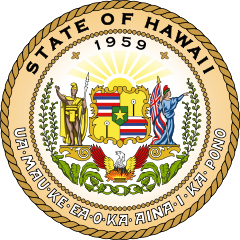December 13, 2013 •
Texas Ethics Commission Condemns Misleading Campaign Communications
The Texas Ethics Commission issued a resolution “unanimously condemn[ing] the use of misleading campaign communications regarding the activities of the [Ethics] Commission.” In its resolution, issued on December 3, 2013 and released online this week, the commission states the use […]
 The Texas Ethics Commission issued a resolution “unanimously condemn[ing] the use of misleading campaign communications regarding the activities of the [Ethics] Commission.”
The Texas Ethics Commission issued a resolution “unanimously condemn[ing] the use of misleading campaign communications regarding the activities of the [Ethics] Commission.”
In its resolution, issued on December 3, 2013 and released online this week, the commission states the use of statements like “‘a sworn complaint has been filed against Candidate A’ or ‘the Texas Ethics Commission is investigating a complaint against Candidate A’ are improper attempts to mislead the public.”
The commission asserts “anyone can file a complaint” with or without merit and the commission must investigate every sworn complaint, “whether it has merit or not.” Because of that, the bipartisan commission finds the use of such campaign advertising “an unfair practice” and argues the use of statements concerning the mere filing of a complaint or a legally required investigation of a complaint doesn’t provide “meaningful information” to voters.
Photo of the Texas State Capitol dome interior by Edward Uthman in Wikimedia Commons.
December 10, 2013 •
Hawaii Ethics Commission Issues New Advisory
The Hawaii State Ethics Commission issued an advisory last week urging public school employees to refrain from promoting charitable fundraisers at school. The advisory was issued after Department of Education teachers and administrators were asked to support and encourage students […]
 The Hawaii State Ethics Commission issued an advisory last week urging public school employees to refrain from promoting charitable fundraisers at school.
The Hawaii State Ethics Commission issued an advisory last week urging public school employees to refrain from promoting charitable fundraisers at school.
The advisory was issued after Department of Education teachers and administrators were asked to support and encourage students to participate in a popular holiday fundraising campaign for the Make-A-Wish Foundation.
The state ethics code prohibits state employees from using work time and state resources for non-state related business purposes, which generally include supporting or promoting private charities.
December 10, 2013 •
State Representative Files Hundreds of Complaints with Oklahoma Ethics Commission
State Rep. Mike Reynolds filed hundreds of ethics complaints with the Oklahoma Ethics Commission. The complaints, filed against candidates and legislators, call attention to what he believes is a lack of enforcement. Most of the violations involved late filings of […]
 State Rep. Mike Reynolds filed hundreds of ethics complaints with the Oklahoma Ethics Commission. The complaints, filed against candidates and legislators, call attention to what he believes is a lack of enforcement.
State Rep. Mike Reynolds filed hundreds of ethics complaints with the Oklahoma Ethics Commission. The complaints, filed against candidates and legislators, call attention to what he believes is a lack of enforcement.
Most of the violations involved late filings of campaign contribution and expenditure reports. Reynolds reports he spent three weeks, using computer programs he developed, to analyze Ethics Commission data. Lee Slater, the Oklahoma Ethics Commission’s new executive director, declined to comment on the complaints. –
November 28, 2013 •
Ohio Ethics Commission Issues Rule Regarding Payment and Reimbursement of Travel Expenses
The Ohio Ethics Commission issued a new rule clarifying when another party may pay or reimburse a public official or employee for travel expenses. A public official or employee may accept a thing of value if it “is not of […]
 The Ohio Ethics Commission issued a new rule clarifying when another party may pay or reimburse a public official or employee for travel expenses. A public official or employee may accept a thing of value if it “is not of such a character as to manifest a substantial and improper influence on the traveler with respect to that person’s duties.”
The Ohio Ethics Commission issued a new rule clarifying when another party may pay or reimburse a public official or employee for travel expenses. A public official or employee may accept a thing of value if it “is not of such a character as to manifest a substantial and improper influence on the traveler with respect to that person’s duties.”
A two-prong test has been put in place for determining whether travel expenses or reimbursements are of such character.
The rule overturns portions of two previously issued Ohio Ethics Commission Advisory Opinions. It also requires public officials or employees to disclose the source and amount of all travel expenses and reimbursements.
November 18, 2013 •
Attorney General Running for Texas Governor Makes Ethics Proposals
Texas Attorney General Greg Abbott has proposed increasing the frequency of reporting campaign finance data and imposing a reporting requirement before spending for certain campaign contributions. Abbott, a candidate for governor, announced his intentions for these and other ethics reforms […]
 Texas Attorney General Greg Abbott has proposed increasing the frequency of reporting campaign finance data and imposing a reporting requirement before spending for certain campaign contributions. Abbott, a candidate for governor, announced his intentions for these and other ethics reforms while campaigning, according to KHOU.com.
Texas Attorney General Greg Abbott has proposed increasing the frequency of reporting campaign finance data and imposing a reporting requirement before spending for certain campaign contributions. Abbott, a candidate for governor, announced his intentions for these and other ethics reforms while campaigning, according to KHOU.com.
One proposal requires that no funds received above $5,000 within the last 30 days before an election be expended by a campaign or PAC until those funds have been reported to the Texas Ethics Commission and posted on the campaign or PAC website.
Other recommendations include requiring quarterly campaign finance reporting as opposed to semi-annually reporting and requiring public officials to disclose any state or local public contracts or paid relationships held by the official or his or her spouse.
November 13, 2013 •
Officialʹs Receipt of Complimentary Tickets Reviewed by Hawaii State Ethics Commission
The Hawaii State Ethics Commission issued four Informal Advisory Opinions pertaining to a state official’s receipt of complimentary event tickets. A state agency may have a legitimate state interest in giving an agency board member a ticket to an agency […]
 The Hawaii State Ethics Commission issued four Informal Advisory Opinions pertaining to a state official’s receipt of complimentary event tickets. A state agency may have a legitimate state interest in giving an agency board member a ticket to an agency event. In that scenario the tickets are not considered “gifts” under Hawaii gift law. Rather, they are “state assets” and distribution must be evaluated in accordance with the fair treatment law under the State Ethics Code.
The Hawaii State Ethics Commission issued four Informal Advisory Opinions pertaining to a state official’s receipt of complimentary event tickets. A state agency may have a legitimate state interest in giving an agency board member a ticket to an agency event. In that scenario the tickets are not considered “gifts” under Hawaii gift law. Rather, they are “state assets” and distribution must be evaluated in accordance with the fair treatment law under the State Ethics Code.
Agency board officials may accept two complimentary tickets per agency event – one for the official and the other for the official’s spouse or significant other. An official’s use of complimentary tickets for additional personal guests constitutes unfair compensation and is, therefore, prohibited. Moreover, transferring complimentary tickets to family members to attend events in the official’s place is also a likely violation of the fair treatment law.
November 5, 2013 •
Texas Ethics Commission Guidance: Independent Expenditure-Only PACs
On November 4, in response to a court decision enjoining the Texas Ethics Commission from enforcing parts of the Election Code, the Ethics Commission released guidance concerning independent expenditure-only PACs. The commission acknowledged restrictions on independent expenditures from independent expenditure-only […]
 On November 4, in response to a court decision enjoining the Texas Ethics Commission from enforcing parts of the Election Code, the Ethics Commission released guidance concerning independent expenditure-only PACs.
On November 4, in response to a court decision enjoining the Texas Ethics Commission from enforcing parts of the Election Code, the Ethics Commission released guidance concerning independent expenditure-only PACs.
The commission acknowledged restrictions on independent expenditures from independent expenditure-only PACs, referred to in the state as “direct campaign expenditure only committees,” are currently unenforceable under the October 16, 2013, ruling in Texans for Free Enterprise v. Texas Ethics Commission.
The commission requires independent expenditure-only PACs submit a sworn statement stating the committee intends to act exclusively as a direct campaign expenditure only committee in accordance with Texans for Free Enterprise and the committee will not use its funds to make contributions to candidates for elective office, officeholders, or political committees supporting or opposing candidates or assisting officeholders.
The commission also made available sample template political committees may use to submit their sworn statements
October 29, 2013 •
Hawaii State Ethics Commission Issues Ethics Advisory
Grassroots Activities May be Reportable as Lobbying Expenses
 The Hawaii State Ethics Commission issued an ethics advisory in response to inquiries received regarding grassroots lobbying activity during the Legislature’s second special session. The Legislature convened on October 28 to discuss same-sex marriage, and many organizations involved in supporting or opposing the bill may be required to report activities to the commission under Hawaii lobbying law.
The Hawaii State Ethics Commission issued an ethics advisory in response to inquiries received regarding grassroots lobbying activity during the Legislature’s second special session. The Legislature convened on October 28 to discuss same-sex marriage, and many organizations involved in supporting or opposing the bill may be required to report activities to the commission under Hawaii lobbying law.
Grassroots lobbying activities such as preparing or distributing flyers and other mailers encouraging members of the public to contact their legislators in support of or in opposition to the bill; producing or paying for broadcast, print, or internet media announcements advocating for or against the issue; and organizing sign-waving or rallies to demonstrate support for or against same-sex marriage may all constitute reportable lobbying expenses under Hawaii law.
October 8, 2013 •
Tuesday Lobbying and Campaign Finance News Update
Keep up with the latest government relations news with these articles:
 Lobbying
Lobbying
Alberta: “Lobbying on the rise as Alberta prepares new tobacco bill” by Keith Gerein in the Edmonton Journal.
“Pfizer names new VP of lobbying team” by Megan Wilson in The Hill.
Campaign Finance
“McCutcheon v. FEC: Possible Implications for the States” by Karen Shanton in NCSL’s The Thicket.
“Supreme Court Hears Another Challenge To Campaign Finance Law” by Nina Totenberg on NPR.
“Let Bitcoins be used for political donations” opinion piece by Dan Backer in Politico.
Arizona: “Campaign finance changes increasing Arizona contribution limits may boost clout of business” by The Associated Press in The Republic.
Maine: “Ethics Commission calls for $32,500 fine against Lewiston casino backers for not disclosing source of campaign contributions” by Scott Thistle in the Bangor Daily News.
New York: “Gaming interests reward legislators” by Casey Seiler in the Times Union.
Ethics
Indiana: “Ethics panel to consider possible job change” by The Associated Press in the Evansville Courier & Press.
New York: “Cuomo’s Office Is Said to Rein In Ethics Board He Created” by Jesse McKinley and Thomas Kaplan in The New York Times.
Rhode Island: “RI Ethics Commission: OK for Chafee administration chief Licht to apply for judgeship” by Philip Marcelo in the Providence Journal.
Elections
Arizona: “Arizona plans to require citizenship proof for state elections” by Tim Gaynor in Reuters.
Massachusetts: “House Special Election Next Week Likely to Diversify Mass. Delegation” by Emily Cahn in Roll Call.
Tech and Social Media
“Government Tweets Down Sharply During Shutdown” by Joseph Marks in Nextgov.
Texas: “Conservative Officials Turn to Crowdsourcing” by Alexa Ura in The Texas Tribune.
October 1, 2013 •
Tuesday Lobbying and Campaign Finance News Update
Keep up with the latest government relations news with these articles:
 Lobbying
Lobbying
“Lobbyists prepare for government shutdown” by Byron Tau in Politico.
“Lobbyists swoop in to defend investor visas” by Kevin Bogardus in The Hill.
Hamilton, Ontario: “Lobbyist registry delayed again” by Matthew Van Dongen in The Spec.
Campaign Finance
“Lobbying, Campaign Finance, and IRS Reports Keep Moving During Shutdown” by Kent Cooper in Roll Call’s Political MoneyLine Blog.
“House Members Shut Down Gov’t. Money Going Out, But Not Contributions Coming In” by Kent Cooper in Roll Call’s Political MoneyLine Blog.
“The Next Citizens United?” by Richard Hasen in Slate.
“The case for eliminating contribution limits” by Ann W. Herberger in Campaigns & Elections.
“Top U.S. political donors in 2012 among country’s richest men” by Gabriel Debenedetti in Reuters.
Alaska: “APOC: No immediate action on complaint against Stiver” by Sam Friedman in the Fairbanks Daily News-Miner.
Maryland: “Maryland’s new laws at a glance” by John Wagner in The Washington Post.
Ethics
FEC: “Not ‘essential’: Shutdown would hit FEC hard” by Dave Levinthal in The Center for Public Integrity.
Georgia: “Ethics commission to ask for special investigator” by The Associated Press in the Athens Banner-Herald.
Ohio: “Son of indicted donor’s lawyer works for Mandel” by Joe Vardon in The Columbus Dispatch.
Government Tech and Social Media
“Government Social Media Feeds Will Go Dark During a Shutdown” by Joseph Marks in Nextgov.
Elections
Ohio: “Ohio lawmaker’s election reform bills include voter ID requirement, reduced early-voting times” by Jeremy Pelzer in The Plain Dealer.
Pennsylvania: “Challenge to Pennsylvania’s voter ID law not affected by Justice Dept. lawsuit against N.C.’s law” by Jan Murphy in The Patriot-News.
August 27, 2013 •
Missouri Ethics Commission Announces New Executive Director
James Klahr to start September 13, 2013
 The Missouri Ethics Commission has announced James Klahr as the new executive director for a six-year term beginning September 13, 2013. Klahr has worked for now-Governor Jay Nixon since 1997, most recently as the administration’s legislative liaison in the Department of Public Safety.
The Missouri Ethics Commission has announced James Klahr as the new executive director for a six-year term beginning September 13, 2013. Klahr has worked for now-Governor Jay Nixon since 1997, most recently as the administration’s legislative liaison in the Department of Public Safety.
Klahr replaces Julie Allen, who became the elections director for Secretary of State Jason Kander in January. Stacey Heislen will remain on the commission’s staff after serving as acting director.
May 20, 2013 •
OK Ethics Commission to Pursue Late Filers
PACs and Candidates
 PACs and candidates behind in filing their scheduled reports with the Oklahoma Ethics Commission may be facing thousands of dollars in fines, according to NewsOK.com.
PACs and candidates behind in filing their scheduled reports with the Oklahoma Ethics Commission may be facing thousands of dollars in fines, according to NewsOK.com.
Executive Director Lee Slater will be focusing efforts this summer on clearing up the backlog of PACs and candidates not keeping up with reporting requirements. More than two dozen PACs have not filed their latest quarterly reports due April 30.
The commission can charge each committee or candidate $100 per day for each day it is late filing, with a total maximum penalty of $1,000. NewsOK.com reports the commission will be hiring a hearing officer before it starts to mail out its penalty assessments, anticipating candidates’ guaranteed right to protest.
March 19, 2013 •
Tuesday Lobbying and Campaign Finance News
Keep up with the latest government relations news with these articles:
 Lobbying
Lobbying
“K Street Files: FTI Consulting Snaps Up C2 Group” by Kate Ackley in Roll Call.
California: “California cities, counties find funds to hire Capitol lobbyists” by Anthony York in the Los Angeles Times.
Georgia: “Ga. senators to debate House plan to limit lobbyist spending; end-of-session drawing near” by The Associated Press in The Republic.
New York: “Artists Against Fracking May Not Be Registered As New York Lobbying Group, AP Reports” by Michael Gormley in the Huffington Post.
Campaign Finance
Connecticut: “The ‘Ernie Newton’ campaign finance ban moves forward” by Ken Dixon in the Connecticut Post.
Las Cruces, New Mexico: “Las Cruces council refines proposed campaign finance ordinance” by Steve Ramirez in the Las Cruces Sun-News.
Vermont: “Vermont Senate’s campaign finance bill: many find something to like” by Nancy Remsen in the Burlington Free Press.
Ethics
“Reps. Andrews, Young to be investigated by House Ethics panel” by Jordy Yager in The Hill.
Florida: “Coalition calls for ethics improvements” by Bill Cotterell in the Florida Current.
Kentucky: “Richie Farmer could be fined $210,000 over 42 ethics violations” by Tom Loftus in the Courier-Journal.
Rhode Island: “Common Cause web site counts days, hours since ethics vote quashed” by Katherine Gregg in the Providence Journal.
From the State Legislatures
“2012 Election Legislation: National Summary” on NCSL.org.
Social Media
New Mexico: “Social media plays a bigger role in leg session” by Julie Ann Grimm in the Santa Fe New Mexican.
March 6, 2013 •
Florida Senate Passes Ethics Package
Bills were priorities of Senate President
 On the first day of the 2013 legislative session the Florida Senate unanimously passed ethics reform bills.
On the first day of the 2013 legislative session the Florida Senate unanimously passed ethics reform bills.
The bills add revolving door provisions, increase the responsibilities of the ethics commission, and require financial disclosure reports to be posted online.
The reform package now moves to the House, where somewhat different versions of the legislation are already under consideration.
State and Federal Communications, Inc. provides research and consulting services for government relations professionals on lobbying laws, procurement lobbying laws, political contribution laws in the United States and Canada. Learn more by visiting stateandfed.com.


